Search
Search Results

Definition
Sui Dynasty
The Sui Dynasty (581-618 CE) was a brief one with only two reigning emperors but it managed to unify China following the split of the Northern and Southern Dynasties period. As had happened previously in Chinese history, a short-lived dynasty...
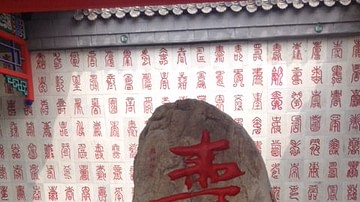
Definition
Chinese Writing
Ancient Chinese writing evolved from the practice of divination during the Shang Dynasty (1600-1046 BCE). Some theories suggest that images and markings on pottery shards found at Ban Po Village are evidence of an early writing system but...
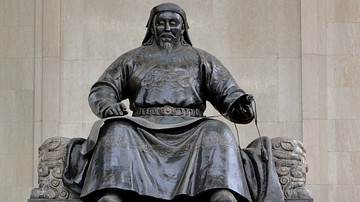
Definition
Kublai Khan
Kublai Khan (Qubilai-Qan) was the ruler of the Mongol Empire from 1260 to 1294. His accomplishments include establishing Mongol rule in China under the name of the Yuan Dynasty (1271-1368), thus becoming the first non-Chinese to rule the...

Definition
Script
Script is the written expression of a language. Cuneiform, the first script, was invented in Sumer, Mesopotamia c. 3500 BCE, hieroglyphics sometime prior to the Early Dynastic Period in Egypt (c. 3150-2613 BCE), and Sanskrit in India during...
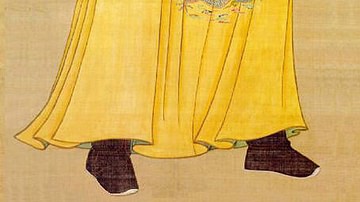
Definition
Emperor Taizong of Tang
Taizong (birth name, Li-Shimin, l. 598-649 CE, r. 626-649 CE) was the second emperor of the Tang Dynasty and is considered one of the greatest rulers in Chinese history for his reforms of the government and the laws, his religious tolerance...
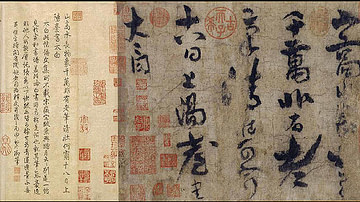
Definition
Chinese Literature
Chinese literature is among the most imaginative and interesting in the world. The precision of the language results in perfectly realized images whether in poetry or prose and, as with all great literature, the themes are timeless. The Chinese...
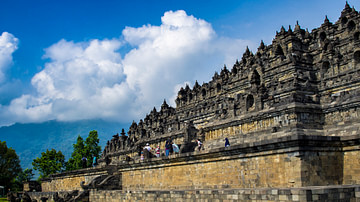
Definition
Borobudur
The Temple of Borobudur or sometimes "Barabudur" is a Mahayana Buddhist temple located close to Muntilan on the island of Java in Indonesia. Built during the rule of the Sailendra Dynasty (c. 650-1025 CE), Borobudur remains the world's largest...
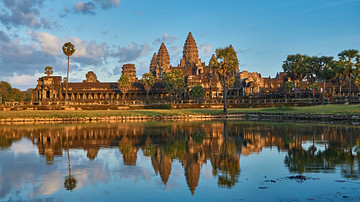
Definition
Angkor Wat
Angkor Wat is a temple complex in the province of Siem Reap, Cambodia originally dedicated to the Hindu god Vishnu in the 12th century CE. It is among the largest religious buildings ever created, second only to the Temple of Karnak at Thebes...

Definition
Surya
Surya (also known as Aditya) is the Hindu god of the Sun. He is considered the creator of the universe and the source of all life. He is the supreme soul who brings light and warmth to the world. Each day he travels across the sky in his...
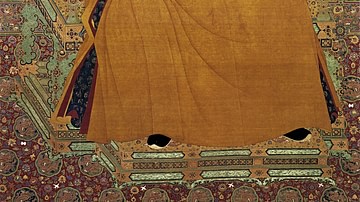
Definition
Yongle Emperor
The Yongle Emperor (aka Chengzu or Yung Lo, r. 1403-1424 CE) was the third ruler of the Chinese Ming Dynasty (1368-1644 CE). Inheriting a stable state thanks to the work of his father, the Hongwu Emperor (r. 1368-1398 CE), Yongle made lasting...